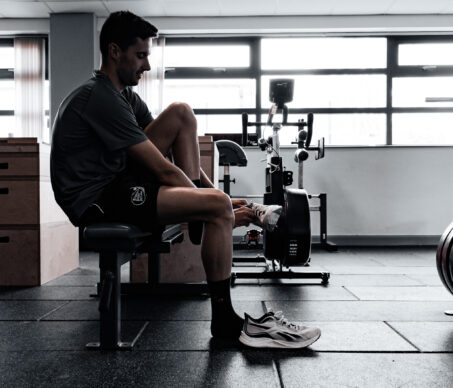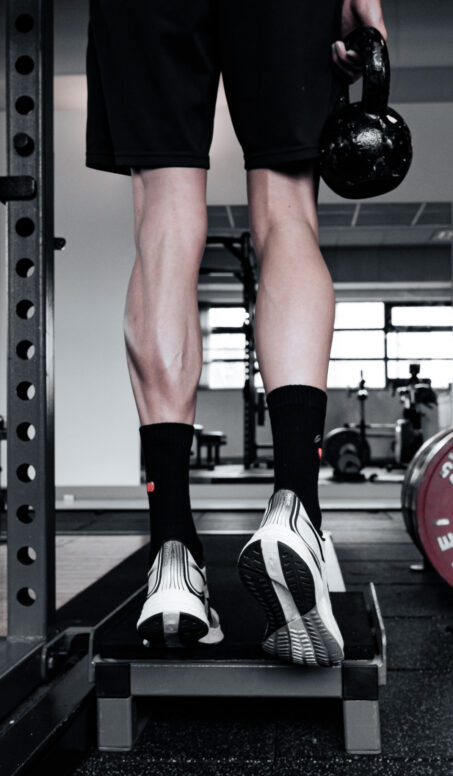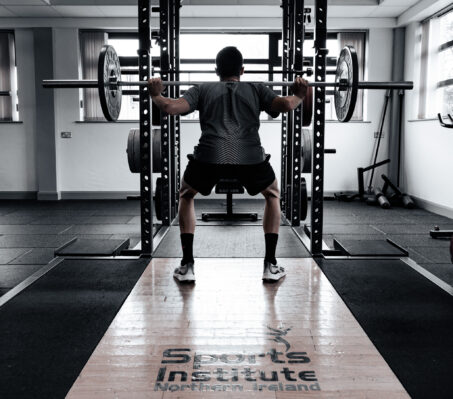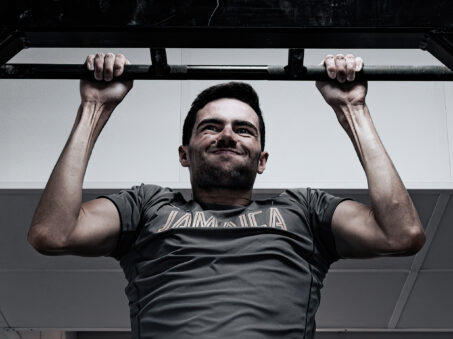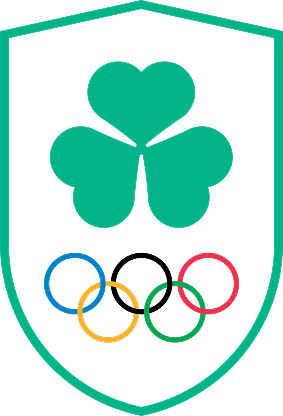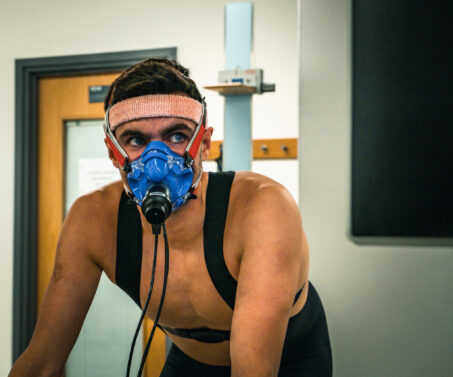
James Edgar is a 23 year old from Lisburn who last year moved from 600th in the World rankings to just outside the top 100. Kickstarting his 2023 season, Edgar has been on an International podium in three out four races. Not bad for the beginning of May. However, it’s not just triathlon that Edgar has excelled at, in 2020 he was crowned Ulster/Northern Ireland 5k and 10k Champion on the track which are both very impressive. Before now, it hasn’t plain sailing for Edgar, he’s endured eight stress fractures in his career, but still remains highly motivated, and committed to the sport of triathlon, aiming to qualify for Paris 2024. We take peak inside a day in the life of an Elite triathlete in Belfast as he prepares to embark on a four week altitude training camp in Andorra, funded by the OFI Make A Difference programme.
- What is it about triathlon? It’s a big commitment in terms of training time, how did you get into it and where is the love of the sport coming from?
It’s definitely a big commitment to do a sport like triathlon. You’re spending up to 35 hours a week training plus all of the travel back and forth from the pool, track and gym so it definitely takes up a lot of your time. I initially got introduced to the sport by my dad who was into all of the crazy endurance events like running the length of Ireland, doing the Marathon Des Sables 3 times and then eventually found himself in the triathlon world jumping straight up to ironman. My brother and I had done every sport under the sun growing up like gymnastics, football, rugby, hockey, tennis, cricket but it was the individual sports of swimming and running that I enjoyed the most growing up. I was never particularly good at sport when I was younger and would consistently be beaten by my younger brother and finished 101st at my first Ulster Schools Cross Country. It was around the same time I did the Lisburn Aquathon which was my initial introduction to the sport. My first triathlon was in 2011 where I crashed on the bike and still have the scars to show for it on my shoulder. Somehow after that I was hooked. The performances then started to follow and when you go from finishing close to dead last to winning races is a pretty good feeling and one you want to replicate time and time again. The goals just get bigger and the whole thing snowballs to the point of realising childhood dreams of competing at the Olympic Games.
- In 2022, you became Irish National Triathlon Champion, you raced the Commonwealth Games in Birmingham and around the World at European, Continental and World Cup level. How do you feel the year went?
Last year was the first time I felt that I started to perform to the level I believed I could after having 8 stress fractures over the last 9 years. It was my first injury free year, which definitely played a big part in the performances throughout the year. I managed to move up in the world rankings from over 600th to just outside the top 100 which is a big jump to make in one year but I felt it had been brewing for quite a few years until I finally put it all together. Racing in Europe was pretty successful for me with quite a few top 5s and top 10s I was looking good for the Commonwealth games which was the big target for the year but unfortunately I got ill from the water quality and suffered badly on the run that day. With the European Games in Krakow this year I’m looking to redeem myself with a really good performance.
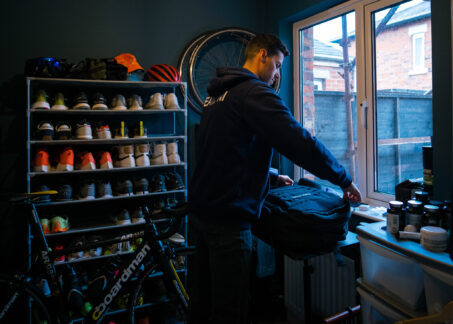
- What does a day in the life of a triathlete look like?
The days can vary quite a lot depending on the time of year usually they look like this; Wake up at 5:30am to be in the pool at 6am for a 90min swim which is usually around 5km. Get home for brekafast around 8am which is a big pot of porridge with a lot of sugar. Then out on the bike for 2-3 hours around 10am and back for lunch at 1pm which usually ends up being a massive pot of pasta with chicken or some other type of meat. Followed by a nap of an hour or two. Then running in the evening for and hour or so and it can be a track session, a tempo run or just an easy jog depending on the day. Other days can have physio and gym thrown in too for good measure but that’s the usual day for me. It tends to be close to 5 hours of training every day, burning up to 5000 calories.
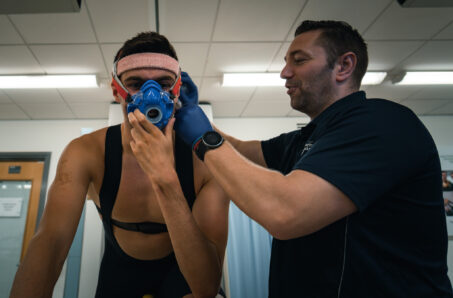
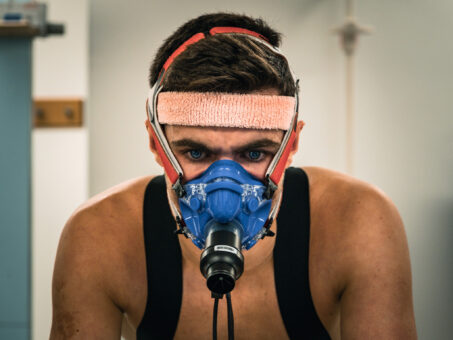
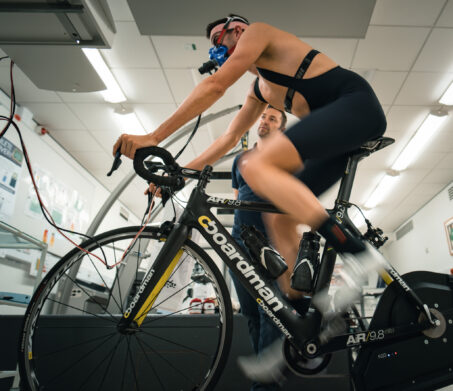
- Fast forward to 2023 and you’ve spent the first part of the year racing in South Africa, Namibia, and Zimbabwe. Three out of the four races you were on the podium! One being on the top step of the podium, what’s the reason for going to Africa? In your opinion, how did it go? Was it a successful trip?
Three podiums out of four races was a pretty good way to start the year that’s for sure. I sliced my foot in one of races which led to a DNF the following week in Namibia which was disappointing but I’d barely walked let alone run, for the week leading up to it so it was always going to be a challenge to finish. To end the trip with my first international victory on the toughest course I’ve ever done at 2200m altitude and 20% gradients on the Bike and Run was amazing and hopefully sets the tone for the rest of the year. I’d planned to go down to Africa to make the most of the points for my world ranking and give me a good opportunity to get a lot of points early on to take the stress off the rest of the year and allow me to focus on the training and performing at the big events. It also wasn’t a bad way to top up the tan and get away from the colder weather at home for 8 weeks.
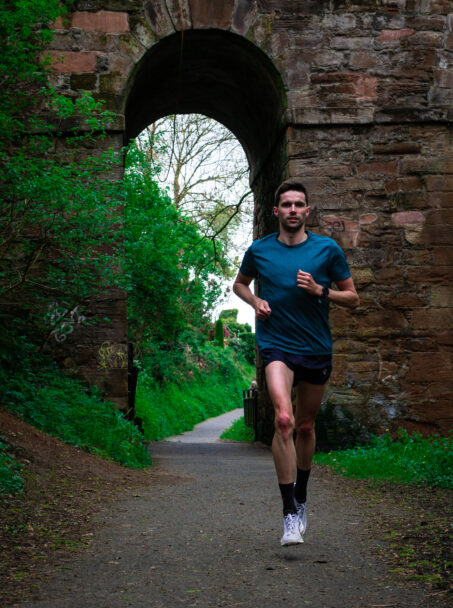
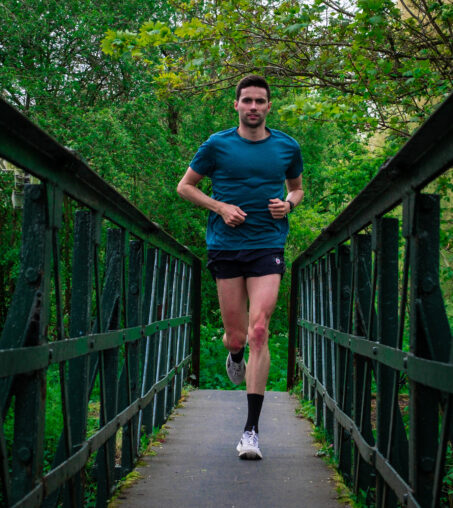
- It’s been a successful start to 2023, what are your plans from now? Where are you going and what are the big goals for this year with Paris 2024 getting closer?
I head off for an altitude camp in Andorra, where I’m spending 4 weeks in the lead up to the European Championships and the European Games which are big aims for this year. It’s been brilliant to get the “Make A Difference” Funding as I’ve been completely self funded this year and will be for the rest of the year. The “Make A Difference” Funding was used to pay for the altitude camp and covered the entire camp plus a bit extra and without it I probably would’ve had to give the altitude a miss due to the cost. The funding will make a massive difference for the entire year which the benefits of the altitude training hopefully carrying me through not only to the European Games but the rest of my races for the rest of the year. I’ve got 17 races in 14 countries as far away as South Korea and Japan this year, so there will be a fair bit of travelling to be done and it would be great to get a few more wins under my belt leading up to Paris 2024. It’s been a childhood dream to compete at the Olympic Games and every good result counts in triathlon with a 2 year qualifying system and I’d love to get qualification wrapped up by the end of this year.
- You’re now in your 10th competitive year in triathlon at the age of 24, if you compare yourself now to how you were as a junior athlete, are there any big changes?
It’s been a very long journey to get to this point and I’m not sure there’s many people that can say they’ve been racing internationally for that long at such a young age. Honestly, there hasn’t been much of a change for me since I was a junior. I got into the sport very young and was always training with older athletes and had the influence of training with Aileen Reid while she was ranked 8th in the world for many years so I had my eyes opened to elite performance and the approach you needed to take in order to be successful. I’ve spent the last 10 years learning from mistakes and struggling with injury and finally now I’m getting the chance to showcase what all the hard-work has been for.
Follow James’ journey via his Instagram
